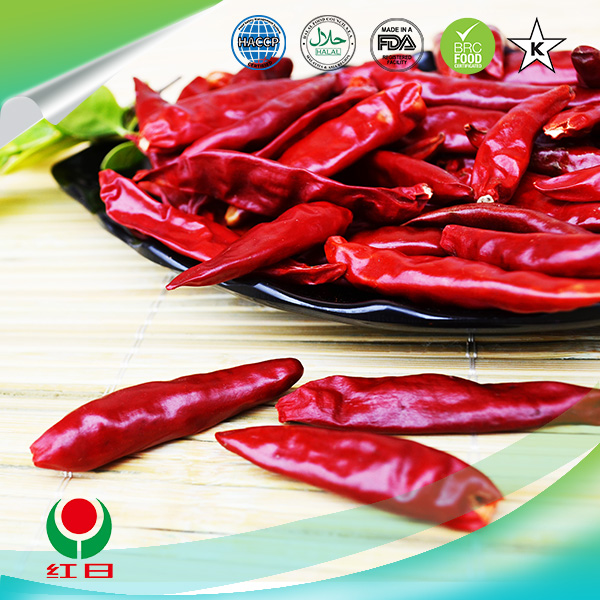- No. 268 Xianghe Street, Economic Development Zone of Xingtai city, Hebei 054001 China
- Byron@hbhongri.cn
Exploring the Benefits of Organic Chili for Health and Flavor Enhancement
The Rise of Organic Chili A Spicy Trend in Sustainable Agriculture
In recent years, the global culinary landscape has undergone a vibrant transformation, with organic ingredients taking center stage. Among these, organic chili has sparked substantial interest among consumers and farmers alike. The shift towards organic farming practices is not just a trend; it represents a growing awareness about health, sustainability, and the environment. Let’s explore the reasons behind the rise of organic chili, its benefits, and its impact on our diets and the agricultural sector.
The Characteristics of Organic Chili
Organic chili is produced without the use of synthetic pesticides, herbicides, or fertilizers. Farmers who grow organic chili focus on using natural inputs and sustainable farming practices to enhance soil fertility and manage pests effectively. This commitment to organic methods not only yields a product that is free from harmful chemicals but also promotes biodiversity and soil health. The organic certification process ensures that these practices are upheld, giving consumers confidence in the quality of the product.
Health Benefits That Pack a Punch
One of the primary reasons consumers are turning to organic chili is the myriad of health benefits associated with it. Chili peppers contain capsaicin, a compound known for its antioxidant properties and ability to boost metabolism. Consuming organic chili not only adds a spicy kick to dishes but also provides a wealth of nutrients without the chemical residue that can come from conventionally grown counterparts.
Furthermore, organic chili is often fresher and more flavorful, enhancing the overall taste of meals. Chefs and home cooks alike appreciate the robust flavor profile that organic varieties bring, as well as the assurance that they are using safe, chemical-free ingredients. This dedication to quality translates to a more vibrant culinary experience, encouraging exploration and creativity in the kitchen.
Environmental Impact and Sustainability
The cultivation of organic chili aligns closely with sustainable agricultural practices. By avoiding synthetic chemicals, organic farmers contribute to a healthier ecosystem. The use of organic methods helps maintain biodiversity, supports soil microbiomes, and reduces pollution in waterways, creating a more balanced environment. This focus on sustainability is essential in the face of climate change, as organic practices are often more resilient and adaptable to changing conditions.
organic chili

Additionally, organic farming can lead to more effective water management. Because organic farming emphasizes building healthy soil, it often improves the soil’s ability to retain moisture. This is particularly significant in regions facing drought or water scarcity. By optimizing water usage, organic chili farmers are not just preserving resources for their crops; they are also protecting the environment for future generations.
Economic Opportunities for Farmers
The demand for organic chili has opened new economic opportunities for farmers around the world. As consumers become more health-conscious and environmentally aware, the market for organic products continues to grow. Farmers who transition to organic practices often find that they can fetch higher prices for their produce, helping to improve their livelihoods.
Moreover, the rise of online marketplaces and local organic farmers' markets allows growers to connect directly with consumers, cutting out middlemen and increasing profit margins. This direct-to-consumer model fosters a sense of community and supports local economies, enabling consumers to have a deeper connection with the food they eat.
Challenges in Organic Chili Production
Despite the many advantages, the journey toward organic chili production is not without its challenges. Farmers transitioning to organic methods may encounter pest management issues and the need for extensive knowledge about organic farming techniques. Additionally, there is often a time lag before the financial benefits of organic farming truly materialize, as farmers must invest in soil health and sustainable practices.
Certification can also be a daunting process, requiring adherence to strict guidelines and documentation. However, organizations and cooperatives are increasingly available to help farmers navigate these challenges, providing education and support for successful transitions to organic farming.
Conclusion
The rise of organic chili represents a significant shift in consumer preferences and agricultural practices. As health, flavor, and sustainability continue to drive food choices, organic chili serves as a shining example of how food can be both delicious and environmentally responsible. With its numerous benefits—from promoting human health to fostering sustainable farming—organic chili is not just a culinary trend; it is a vital component of a healthier and more sustainable future for our planet. Whether enjoyed in a zesty dish or used as a spice, organic chili offers a tantalizing glimpse into the possibilities of organic agriculture, helping us spice up our lives while caring for the earth.
-
Turmeric Rhizome Powder: A Golden Treasure from Roots to TableNewsJul.28,2025
-
The Versatile Application Of Crushed Red Hot Peppers: Lighting Up The Red Flames On The Dining TableNewsJul.28,2025
-
The Paprika: A Touch Of Vibrant Red In Color, Flavor, And CultureNewsJul.28,2025
-
Ground Turmeric: A Modern Examination of an Ancient SpiceNewsJul.28,2025
-
Capsicum Liquid Extract: Features, Applications, and ChallengesNewsJul.28,2025
-
Application of Capsicum Liquid Extract in FoodNewsJul.28,2025







